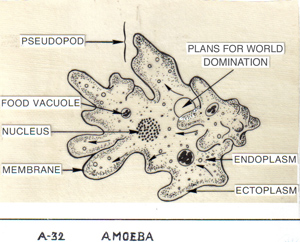So most of my friends (and probably most of you here) have figured out I’m a bit, well, extra excited about fungi. Well, the person who planted the spore in my brain (and the person who trained her) hit the airwaves and Interwebz today after Cornell (Alma mater A) published a press release about the return of some rare Chinese fungi to their home.
Here and here are print versions of the story, and here is a version that aired on NPR today (thank you Kathie and Daniel for the links!).
Kathie Hodge, the Cornell herbarium’s director, said the fungi are invariably tiny — “just dried up leaves, most of them, or pieces of wood with a little dot on them. To an average person, they look like something you would sweep off your kitchen floor. But under the microscope they’re beautiful and exciting and incredibly diverse.”
“I think it’s really important to understand the diversity of life on Earth and we are so far from being able to do that right now,” she said. “And fungi are one of the last great frontiers of biology.”
These rare fungi just made it out of Dodge before the Japanese played havoc with the country during the Sino-Japanese war prior to World War II, and the stories imply had it not been for the heroic efforts of a Chinese Cornell alum to sneak them out of the country and ship them to Ithaca, they would all have been lost. Instead, they headed to Cornell where they met a fate similar to the Ark of the Covenant at the end of Raiders of the Lost Ark: warehousing in the Cornell Plant Path Herbarium (I don’t mean to imply that’s a bad thing — quite the contrary! Although I did once visit the Herbarium, and I have to say, it was very mothbally).
The story of what happened to their valiant rescuer is sad, though, and a testament to the brutality of the Cultural Revolution. I’ve seen several movies that portrayed it, at least in part, including The Red Violin and Farewell My Concubine. I never cease to be appalled.
Here’s hoping the current Chinese government can put these specimens to good use (though if you read carefully, you see we are keeping half of each sample just to be on the safe side). Lord knows the ecology of China is not what it once was. It occurs to me that these specimens provide the hope that if some have gone extinct, we might at least be able to perform the Jurassic Park treatment.

